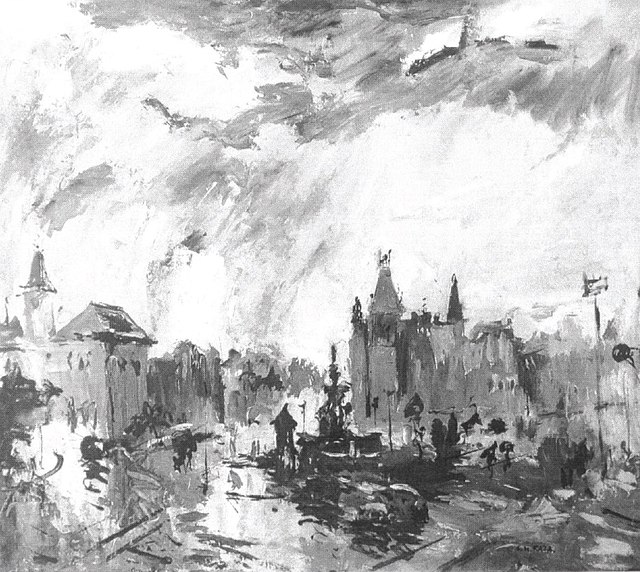
Shashi Kapoor and the Drunkard Twilight: A Ghazal
In these our strange days, Shashi Kapoor
serenades a sigh. Hear, this Hindi film song
Draped within the inflection of plummeted
yesterdays, revere, this Hindi film song
The kettle protests its burden of chai,
heaving with the brusque manner of ginger
Sheltered warmly between the nineteen fifty-
nine of atmospheres, this Hindi film song
Let’s taash. Let’s gaana. Let’s nashah. Let’s
mushaira away the seductive stillnesses
I search for faith. I find the art deco lone-
someness of years. This Hindi film song
Let’s steal away to when Mum & Dad danced
around bonfires drunk with winterness
The past is a naghma. An unspoken radio.
Vinyl. It endears, this Hindi film song
You asked me once about God. I pointed
to the sky and the brightness in my eyes
Why is youth such a staccato dream? It drifts,
only to reappear. This Hindi film song
Shashi Kapoor lavishes his proud Indian
heart with romance plucked from the ages
Framed in perfection. A Wallah dons Shake-
speare. How cavalier. This Hindi film song
I suppose it’s the instances of black & white.
A photograph. A scene. A negative
It’s the past, and you, scavenging a bureau
of buried souvenirs; this Hindi film song
All is disquiet on the eastern front. Let’s
Mohammed Rafi away our broken hearts
He sings of written letters and a woman’s
memories. A veneer, this Hindi film song
My first ghazal was a letter to the stars. I
imagine nothing much has changed since
My politics is love. Let’s not politicise it.
In words, in blue tears, this Hindi film song
Let’s ganja tonight. Let’s hashish tonight.
A bottle of Roku kissed by the disloyal rocks
In a twilight sloshed on recorded myths,
Siddharth, let’s disappear this Hindi film song
And Other Words
Within the tropical blush of a Bombay afternoon,
the confessions of a fabled Hindi film studio serving
as an address, the Egyptian writer Ahdaf Soueif says:
‘The Nile is the longest river. It is also the loneliest river.’
Time coughs a stuttered cough, as though in apology.
Across the geographies of this lovelorn summer,
hyacinths erupt to a secret music, because this is what
one does when one is faced with pure faithfulness.
‘The Nile is the longest river. It is also the loneliest river.’
I’m struck by how you could replace Nile with a clutch
of other carefully chosen words, and the expression
would keep its form just the same. Marriage. Monsoon.
Grief. Love. Drought. Harvest. Kiss. Age. Beauty. Hell,
even Life. In this, the city of ishq poured neat and hearts
quenched straight, it’s always been the potency of language
that has delivered the rough kiss: Plan majboot hai.
The plan is solid. Khuda jaane, yaar. Lord knows, my friend.
Rehne de, rehne de. Leave it be, leave it be. The dissident’s
dream remains majboot. I’ve not known the sound a heart
makes when it finally explodes. Khuda jaane, yaar.
And what happens to the remainder of this story?
Rehne de, rehne de. A passage drifts, like the variations
of oft-repeated mythology. ‘The Nile is the longest river.
It is also the loneliest river.’ The words dance among
the homes and churches that litter this leafy neighbourhood,
into lives creaking beneath the weight of their own lengths,
beneath shadows fumbling into the folds of their private
solitudes. Crickets confess love for each other. A ten-
minute walk removed, waves do much the same, sending
brine-soaked letters drenched with Arabian laments
crashing into the paths of rocks, and faith. ‘The Nile
is the longest river. It is also the loneliest river.’ Another
word comes to mind, capable of replacing Nile with
no concession to the legitimacy of the statement.
That word is Writer.




